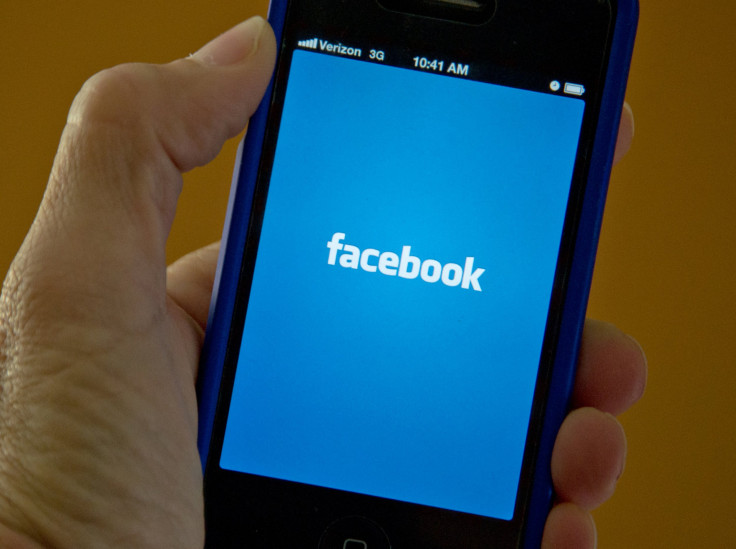Facebook Inc. (FB) Takes On Google In Ads With People Targeting In Mobile Web

Facebook's 1.5 billion monthly users have become used to seeing targeted ads in their feeds. Soon they'll be seeing them outside of Facebook on the mobile web, expanding beyond the foundation of third-party mobile apps.
Facebook is extending its Audience Network to include mobile websites, meaning advertisers can reach the social network's users when they're not on Facebook. It's a major incursion into Google's territory and part of Facebook's attempt use the detailed information in its profiles to remap the digital ad ecosystem, which is based largely on anonymous pieces of browser software known as cookies.
Facebook's system effectively replaces the cookie with a detailed Facebook profile, allowing Facebook to claim it offers real people to publishers, and does not merely trigger cookies on browsers and devices. “We built an ad system that works on people and not on cookies. We understand the person, and that brings real value to mobile,” Brian Boland, Facebook’s VP of advertising technology, told International Business Times.
It’s a big step for Facebook that will allow it to broaden its position from a mere seller of digital ads to a company that, like Google, powers significant portions of online advertising. Facebook is already a majority-mobile business; of its $4.5 billion in revenue in the third quarter of 2015, 78 percent came from mobile. Facebook boasted 1 billion daily active users, with 894 million via mobile, as of November.
In 2016, Facebook and Google together are expected to account for more than 50 percent of all mobile ad revenue in the U.S., according to an estimate from eMarketer.
The Audience Network offers publishers access to over 2.5 million advertisers on Facebook’s system and allows them to create ad formats that can be linked to people’s profiles. The announcement comes just a day before Facebook reports its fourth-quarter-2015 and full-year earnings.
But the move comes at no surprise to marketers and analysts. In fact, some question why the company has not done it sooner. "Facebook’s expansion on the mobile web with Audience Network is not a surprise and will be a force to reckon with," said Johnny Won, founder and managing partner at tech consultancy firm Hyperstop. "While Yahoo and Twitter both have lots of scale and some interesting data, no one has the people data that Facebook does, especially across devices like desktop, tablet and mobile."
Facebook claims the Audience Network reached a $1 billion annual run rate for gross revenue in the fourth quarter of 2015. The network shares this ad revenue with publishers. The company also reported that its advertisers account for 6 percent of total time spent in mobile apps.
“There are a ton of mobile apps, but there are even more websites,” Boland said. “Publishers use an array of solutions today … We’re not thinking of other ad tech. What we’re trying to tell publishers to buy into is this notion of value.”
Over the past few months, Facebook has been working with Slate, Answers.com, Elite Daily and Diply to test the ads on the mobile web in a pilot test.
Facebook isn’t alone in this designation as an ad server on mobile. Twitter has its own called MoPub, which the company acquired in 2013 and has served over 1 billion smartphones. Yahoo offers Gemini as well as Flurry for ad placement and app analytics across Yahoo-owned websites and third-party apps.
"Facebook is definitely winning ... They put their money where their mouth is," said Ian Schafer, CEO of Deep Focus, referencing the company's acquisition of Atlas, an ad service and measurement company, in 2013.
The tech giants have a vested interest in the evolving culture of advertising. Cookie-based technology, as online tracking for ads, has failed on the mobile web. Banner ads are becoming even less acceptable to consumers and less effective as ad blockers rise in popularity.
In comparison with Google, Twitter and Yahoo, Facebook reigns as king of knowledge about consumers. The social network benefits from 1.55 billion monthly active users, who create profiles filled with their interests and are constantly feeding new personal data into the system.
Facebook, in meeting with marketers’ demands, has worked to eliminate fraud with its system. Fraud in online advertising can relate to viewability and providing fake views. Facebook changed its system last summer to charge for either cost per view (after 10 seconds) or cost per thousand impressions, or times an ad is fetched from its source.
“We are focused on value,” Boland said. “If a publisher is doing things with a lot of robots, well, it turns out robots don’t buy products.”
© Copyright IBTimes 2024. All rights reserved.












